Edie Melson's Blog, page 391
December 24, 2014
The Twelve Days of Christmas for Writers
by DiAnn Mills @DiAnnMills
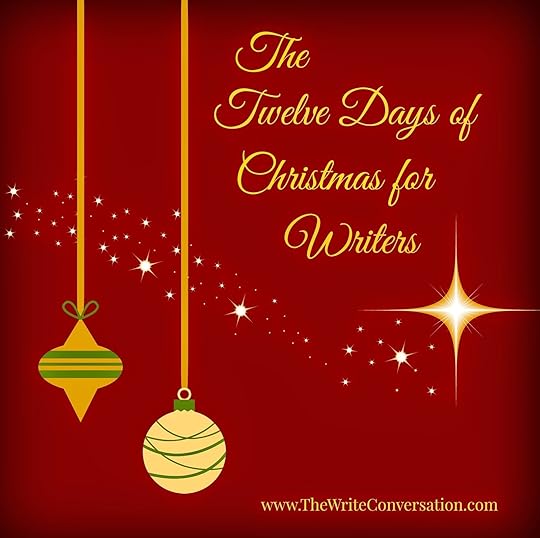 The Twelve Days of Christmas has been given a new twist. This version is for writers.
The Twelve Days of Christmas has been given a new twist. This version is for writers.
On the first day of Christmas,My true love sent to meA conference in Dallas, Texas.
On the second day of Christmas,My true love sent to meTwo webinars,And a conference in Dallas, Texas.
On the third day of Christmas,My true love sent to meThree iPads,Two webinars,And a conference in Dallas, Texas.
 On the fourth day of Christmas,My true love sent to meFour proofreaders,Three iPads,Two webinars,And a conference in Dallas, Texas.
On the fourth day of Christmas,My true love sent to meFour proofreaders,Three iPads,Two webinars,And a conference in Dallas, Texas.
On the fifth day of Christmas,My true love sent to meFive contracts signed,Four proofreaders,Three iPads,Two webinars,And a conference in Dallas, Texas.
On the sixth day of ChristmasMy true love sent to meSix pink highlighters,Five contracts signed,Four proofreaders, Three iPads,Two webinars,And a conference in Dallas, Texas.
 On the seventh day of ChristmasMy true love sent to meSeven eager agents,Six pink highlighters,Five contracts signed,Four proofreaders,Three iPads,Two webinars,And a conference in Dallas, Texas.
On the seventh day of ChristmasMy true love sent to meSeven eager agents,Six pink highlighters,Five contracts signed,Four proofreaders,Three iPads,Two webinars,And a conference in Dallas, Texas.
On the eighth day of ChristmasMy true love sent to meEight thick-skinned edits,Seven eager agents,Six pink highlighters,Five contracts signed,Four proofreaders,Three iPads,Two webinars,And a conference in Dallas, Texas.
 On the ninth day of ChristmasMy true love sent to meNine cups of Starbucks,Eight thick-skinned edits,Seven eager agents,Six pink highlighters,Five contracts signed,Four proofreaders,Three iPads,Two webinars,And a conference in Dallas, Texas.
On the ninth day of ChristmasMy true love sent to meNine cups of Starbucks,Eight thick-skinned edits,Seven eager agents,Six pink highlighters,Five contracts signed,Four proofreaders,Three iPads,Two webinars,And a conference in Dallas, Texas.
On the tenth day of ChristmasMy true love sent to meTen Godiva chocolates,Nine cups of Starbucks,Eight thick-skinned edits,Seven eager agents,Six pink highlighters,Five contracts signed,Four proofreaders,Three iPads,Two webinars,And a conference in Dallas, Texas.
 On the eleventh day of ChristmasMy true love sent to meEleven million readers,Ten Godiva chocolates,Nine cups of Starbucks,Eight thick-skinned edits,Seven eager agents,Six pink highlighters,Five contracts signed,Four proofreaders,Three iPads,Two webinars,And a conference in Dallas, Texas.
On the eleventh day of ChristmasMy true love sent to meEleven million readers,Ten Godiva chocolates,Nine cups of Starbucks,Eight thick-skinned edits,Seven eager agents,Six pink highlighters,Five contracts signed,Four proofreaders,Three iPads,Two webinars,And a conference in Dallas, Texas.
 On the twelfth day of ChristmasMy true love sent to meTwelve books on blogging,Eleven million readers,Ten Godiva chocolates,Nine cups of Starbucks,Eight thick-skinned edits,Seven eager agents,Six pink highlighters,Five contracts signed,Four proofreaders,Three iPads,Two webinars, And a conference in Dallas, Texas!
On the twelfth day of ChristmasMy true love sent to meTwelve books on blogging,Eleven million readers,Ten Godiva chocolates,Nine cups of Starbucks,Eight thick-skinned edits,Seven eager agents,Six pink highlighters,Five contracts signed,Four proofreaders,Three iPads,Two webinars, And a conference in Dallas, Texas!
Actually, I signed the contracts and sent back the gifts.
Merry Christmas!
DiAnn
TWEETABLES
New twist on a classic carol, the Twelve Days of Christmas for Writers! - @DiAnnMills on @EdieMelson (Click to Tweet)
The Twelve Days of Christmas for Writers - via @DiAnnMills on @EdieMelson (Click to Tweet)
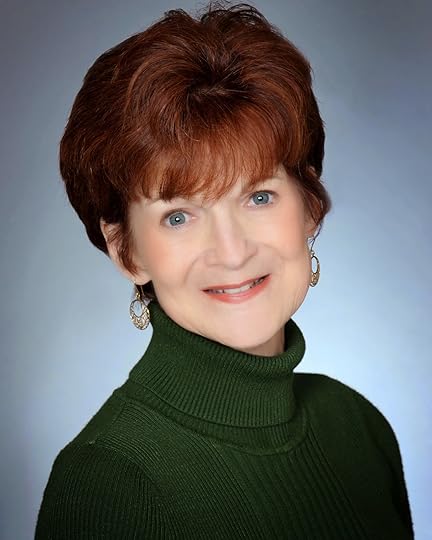 DiAnn Mills is a bestselling author who believes her readers should expect an adventure. She currently has more than sixty books published. Her titles have appeared on the CBA and ECPA bestseller lists; won two Christy Awards; and been finalists for the RITA, Daphne Du Maurier, Inspirational Readers’ Choice, and Carol award contests. DiAnn is a founding board member of the American Christian Fiction Writers; the 2014 president of the Romance Writers of America’s Faith, Hope, & Love chapter; and a member of Inspirational Writers Alive, Advanced Writers and Speakers Association, and International Thriller Writers. She speaks to various groups and teaches writing workshops around the country. DiAnn is also a craftsman mentor for the Jerry B. Jenkins Christian Writers Guild. She and her husband live in sunny Houston, Texas. Visit her website at www.diannmills.com and connect with her onTwitter: https://twitter.com/diannmillsFacebook: www.facebook.com/DiAnnMillsPinterest: www.pinterest.com/DiAnnMillsGoodreads: www.goodreads.com/DiAnnMillsGoogle+: https://plus.google.com/u/0/+DiAnnMillsExpectAnAdventure/posts
DiAnn Mills is a bestselling author who believes her readers should expect an adventure. She currently has more than sixty books published. Her titles have appeared on the CBA and ECPA bestseller lists; won two Christy Awards; and been finalists for the RITA, Daphne Du Maurier, Inspirational Readers’ Choice, and Carol award contests. DiAnn is a founding board member of the American Christian Fiction Writers; the 2014 president of the Romance Writers of America’s Faith, Hope, & Love chapter; and a member of Inspirational Writers Alive, Advanced Writers and Speakers Association, and International Thriller Writers. She speaks to various groups and teaches writing workshops around the country. DiAnn is also a craftsman mentor for the Jerry B. Jenkins Christian Writers Guild. She and her husband live in sunny Houston, Texas. Visit her website at www.diannmills.com and connect with her onTwitter: https://twitter.com/diannmillsFacebook: www.facebook.com/DiAnnMillsPinterest: www.pinterest.com/DiAnnMillsGoodreads: www.goodreads.com/DiAnnMillsGoogle+: https://plus.google.com/u/0/+DiAnnMillsExpectAnAdventure/posts
 The Twelve Days of Christmas has been given a new twist. This version is for writers.
The Twelve Days of Christmas has been given a new twist. This version is for writers.On the first day of Christmas,My true love sent to meA conference in Dallas, Texas.
On the second day of Christmas,My true love sent to meTwo webinars,And a conference in Dallas, Texas.
On the third day of Christmas,My true love sent to meThree iPads,Two webinars,And a conference in Dallas, Texas.
 On the fourth day of Christmas,My true love sent to meFour proofreaders,Three iPads,Two webinars,And a conference in Dallas, Texas.
On the fourth day of Christmas,My true love sent to meFour proofreaders,Three iPads,Two webinars,And a conference in Dallas, Texas.On the fifth day of Christmas,My true love sent to meFive contracts signed,Four proofreaders,Three iPads,Two webinars,And a conference in Dallas, Texas.
On the sixth day of ChristmasMy true love sent to meSix pink highlighters,Five contracts signed,Four proofreaders, Three iPads,Two webinars,And a conference in Dallas, Texas.
 On the seventh day of ChristmasMy true love sent to meSeven eager agents,Six pink highlighters,Five contracts signed,Four proofreaders,Three iPads,Two webinars,And a conference in Dallas, Texas.
On the seventh day of ChristmasMy true love sent to meSeven eager agents,Six pink highlighters,Five contracts signed,Four proofreaders,Three iPads,Two webinars,And a conference in Dallas, Texas. On the eighth day of ChristmasMy true love sent to meEight thick-skinned edits,Seven eager agents,Six pink highlighters,Five contracts signed,Four proofreaders,Three iPads,Two webinars,And a conference in Dallas, Texas.
 On the ninth day of ChristmasMy true love sent to meNine cups of Starbucks,Eight thick-skinned edits,Seven eager agents,Six pink highlighters,Five contracts signed,Four proofreaders,Three iPads,Two webinars,And a conference in Dallas, Texas.
On the ninth day of ChristmasMy true love sent to meNine cups of Starbucks,Eight thick-skinned edits,Seven eager agents,Six pink highlighters,Five contracts signed,Four proofreaders,Three iPads,Two webinars,And a conference in Dallas, Texas.On the tenth day of ChristmasMy true love sent to meTen Godiva chocolates,Nine cups of Starbucks,Eight thick-skinned edits,Seven eager agents,Six pink highlighters,Five contracts signed,Four proofreaders,Three iPads,Two webinars,And a conference in Dallas, Texas.
 On the eleventh day of ChristmasMy true love sent to meEleven million readers,Ten Godiva chocolates,Nine cups of Starbucks,Eight thick-skinned edits,Seven eager agents,Six pink highlighters,Five contracts signed,Four proofreaders,Three iPads,Two webinars,And a conference in Dallas, Texas.
On the eleventh day of ChristmasMy true love sent to meEleven million readers,Ten Godiva chocolates,Nine cups of Starbucks,Eight thick-skinned edits,Seven eager agents,Six pink highlighters,Five contracts signed,Four proofreaders,Three iPads,Two webinars,And a conference in Dallas, Texas. On the twelfth day of ChristmasMy true love sent to meTwelve books on blogging,Eleven million readers,Ten Godiva chocolates,Nine cups of Starbucks,Eight thick-skinned edits,Seven eager agents,Six pink highlighters,Five contracts signed,Four proofreaders,Three iPads,Two webinars, And a conference in Dallas, Texas!
On the twelfth day of ChristmasMy true love sent to meTwelve books on blogging,Eleven million readers,Ten Godiva chocolates,Nine cups of Starbucks,Eight thick-skinned edits,Seven eager agents,Six pink highlighters,Five contracts signed,Four proofreaders,Three iPads,Two webinars, And a conference in Dallas, Texas! Actually, I signed the contracts and sent back the gifts.
Merry Christmas!
DiAnn
TWEETABLES
New twist on a classic carol, the Twelve Days of Christmas for Writers! - @DiAnnMills on @EdieMelson (Click to Tweet)
The Twelve Days of Christmas for Writers - via @DiAnnMills on @EdieMelson (Click to Tweet)
 DiAnn Mills is a bestselling author who believes her readers should expect an adventure. She currently has more than sixty books published. Her titles have appeared on the CBA and ECPA bestseller lists; won two Christy Awards; and been finalists for the RITA, Daphne Du Maurier, Inspirational Readers’ Choice, and Carol award contests. DiAnn is a founding board member of the American Christian Fiction Writers; the 2014 president of the Romance Writers of America’s Faith, Hope, & Love chapter; and a member of Inspirational Writers Alive, Advanced Writers and Speakers Association, and International Thriller Writers. She speaks to various groups and teaches writing workshops around the country. DiAnn is also a craftsman mentor for the Jerry B. Jenkins Christian Writers Guild. She and her husband live in sunny Houston, Texas. Visit her website at www.diannmills.com and connect with her onTwitter: https://twitter.com/diannmillsFacebook: www.facebook.com/DiAnnMillsPinterest: www.pinterest.com/DiAnnMillsGoodreads: www.goodreads.com/DiAnnMillsGoogle+: https://plus.google.com/u/0/+DiAnnMillsExpectAnAdventure/posts
DiAnn Mills is a bestselling author who believes her readers should expect an adventure. She currently has more than sixty books published. Her titles have appeared on the CBA and ECPA bestseller lists; won two Christy Awards; and been finalists for the RITA, Daphne Du Maurier, Inspirational Readers’ Choice, and Carol award contests. DiAnn is a founding board member of the American Christian Fiction Writers; the 2014 president of the Romance Writers of America’s Faith, Hope, & Love chapter; and a member of Inspirational Writers Alive, Advanced Writers and Speakers Association, and International Thriller Writers. She speaks to various groups and teaches writing workshops around the country. DiAnn is also a craftsman mentor for the Jerry B. Jenkins Christian Writers Guild. She and her husband live in sunny Houston, Texas. Visit her website at www.diannmills.com and connect with her onTwitter: https://twitter.com/diannmillsFacebook: www.facebook.com/DiAnnMillsPinterest: www.pinterest.com/DiAnnMillsGoodreads: www.goodreads.com/DiAnnMillsGoogle+: https://plus.google.com/u/0/+DiAnnMillsExpectAnAdventure/posts
Published on December 24, 2014 01:00
December 23, 2014
Indie Tuesday—A Year Learned
 by Jessica Keller @AuthorKeller
by Jessica Keller @AuthorKellerIn the past year I’ve tried to share as much as I could about the life of an indie author. I hope someone out there has found Indie Tuesday useful. I’ve really enjoyed my time on The Write Conversation and appreciate the interactions I’ve had with so many of you. But as the saying goes, all good things must come to an end, and today marks my final day as a regular contributor to this blog. So what have I learned this year?
Keep your focus. I’ve learned that I need to focus more on the vision I have for my career and let my “yes” be used for things that build toward my career goals. I’ve too often said yes to really good things that didn’t fall in line with where I wanted my career to head, or what I had chosen to focus on and got off track this past year. A lot. In that vein, I will be (attempting) to follow Edie’s excellent example and work on building a better schedule over at my personal blog. I will also be focusing on only writing novels that fit into my goals for 2015.
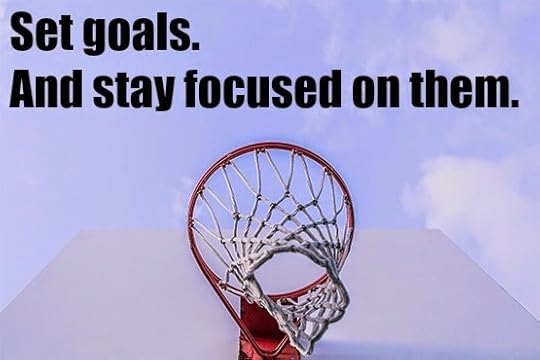
Swallow your pride. I’m strongly considering moving my young adult fiction under a pen name, which will mean rebranding myself some. Is this a good move? Actually, for an indie, this is an excellent move. Regrettably, its one I fought for a long time because I really only wanted to manage one online profile, but my audiences are starting to hurt each other. I have inspirational romance readers who have questioned if my Love Inspired books would be enjoyable for them since I write “those kid books” and I have teens contacting me telling me they are nervous to read my YA book because they saw I write inspirational romance.
So learn from me. If you are going to write for audiences that are diversely different, consider a pen name before your books start coming out.
Do what you love. Know what? I love writing young adult fiction. It makes me giddy. When I’m in the midst of working on my young adult fantasy books I’ll stay up until two in the morning typing away—lost in the story. My inspirational romances, not as much. Don’t get me wrong, I love the romances I write. It just feels different when I write them. I schedule out my time and set a timer to make myself get a certain word count in. I will continue to write both genres, but I realized this year that my time spent on both need to be flip-flopped. So going forward the bulk of my time will go toward my YA books and a smaller percentage will be left to write my romances. I think this’ll reenergize my writing time going into 2015.

Reach out. For a long time I’ve lamented that fact that I don’t have tons of really close writing friends (especially in the indie arena). Being an indie is difficult and it’s a journey that you really need to have support on.
When I first started talking about “going indie” it was still considered a bit taboo in the CBA writing world. In some spears it still is. I had many friends who loved my book, but indies need other indies who understand what a long haul this is. Who will support, cry with you over indie specific issues, and people who will help each other with promotions. I spent a good chunk of 2014 frustrated and questioning why I couldn’t find those indie friends that I desperately needed, and then I finally stopped waiting and went looking in a different pond. Consequently I found the #IndieBooksBeSeen movement on Twitter and have found an ocean of support there. It’s made all the difference for me in the last half of the year.
Just keep writing. Remember Dorie? The fish in Finding Nemo that chanted, “Just keep swimming. Just keep swimming.” If there is one piece of advice I could leave you with, it’s just keep writing. I know that sounds simplistic, but when it comes to the indie writing world, that really is the biggest part of the puzzle. Want to sell more books? Write another one. Get series out in a timely manner (many of my friends have smashing success with releasing three book series over a 90-120 day period). More books in the Amazon algorithm drives higher sales. And the more books you have out, the less books each you have to sell per month to make a decent living. Books serve as the best promotion for your next book, and your next—as long as they keep coming. A year between each book? That doesn’t bring sales for an indie.
While I won’t be on The Write Conversation in the new year I’m still around and still love chatting about anything writing related. Always feel free to contact me on Twitter or Facebook—especially with indie questions.
Tweetables The 5 things I learned about my writing career in2014 – via @AuthorKeller #IndieBooksBeSeen #IndiePub #Publishing (Click to Tweet)
“Just keep writing.” The best advice for a writer.#indiepub #amwriting #publishing –via @AuthorKeller (Click to Tweet)
 Jessica Keller holds degrees in both Communications and Biblical Studies. She is multi-published in both Young Adult Fiction and Inspirational Romance and has 100+ magazine and newspaper articles to her name. Her latest indie release is Searching for Home. She also has a speaking ministry and loves to talk books. Jessica lives in the Midwest with her amazing husband and their very giggly daughter.
Jessica Keller holds degrees in both Communications and Biblical Studies. She is multi-published in both Young Adult Fiction and Inspirational Romance and has 100+ magazine and newspaper articles to her name. Her latest indie release is Searching for Home. She also has a speaking ministry and loves to talk books. Jessica lives in the Midwest with her amazing husband and their very giggly daughter.Connect with Jessica through her Website, blog, Facebook, Amazon Page, Pinterest, and on Twitter.
Published on December 23, 2014 00:00
December 22, 2014
Social Media Monday—The Worst Thing You can do When You Take a Day Off from Blogging
by Edie Melson @EdieMelson
 Social Media MondayWe all know consistency is an important part of social media, especially with blogging. But our digital life isn’t the end all be all of all life. It's just one small part. Because of that, there are times when we aren’t consistent—either by choice or by circumstances. And that’s okay, life happens and we all need some time off to regroup and recharge.
Social Media MondayWe all know consistency is an important part of social media, especially with blogging. But our digital life isn’t the end all be all of all life. It's just one small part. Because of that, there are times when we aren’t consistent—either by choice or by circumstances. And that’s okay, life happens and we all need some time off to regroup and recharge.
This past week was just such a time for me. Friday evening our middle son got married. It was a joyous celebration, and I chose to experience the whole of it—unplugged.
So when the time comes for you to make that choice, I’d like to share the very WORST thing you can do when you take a day off from blogging.
 Don't post an apology.That’s it in a nutshell. But in case you’re curious, here are the reasons why.
Don't post an apology.That’s it in a nutshell. But in case you’re curious, here are the reasons why.
If you’ve been following my directions, you have a way for your audience to follow your blog through email and RSS updates. The last thing you want to do is clog your audience’s inbox with false hope. And that’s what an email update that turns out to be an apology is. Here’s the scenario that you’ve unwittingly set up: Your audience is expecting a post, they get an email from you.They open the email and instead of the post they expect, they get an apology and a notice that there’s not going to be a post today.OR even worse, they don’t click on the email. They choose to go directly to your site, and instead of the post they’re expecting, they get a short apology stating that there’s not going to be a post.
 Don't waste your audience's time.Both scenarios result in wasted time and energy for your audience. Wasted time and energy is also frustrating, especially during the holidays when time is at a premium. So don’t apologize or announce there’s not going to be a post. If you want to apologize, do it at the end of your next post.
Don't waste your audience's time.Both scenarios result in wasted time and energy for your audience. Wasted time and energy is also frustrating, especially during the holidays when time is at a premium. So don’t apologize or announce there’s not going to be a post. If you want to apologize, do it at the end of your next post.
Under the heading of don’t waste someone’s time. You also shouldn’t spend a lot of time explaining what happened to make you decide not to post. Let’s face it, life happens to all of us. Your audience gets that. Don’t waste their time on a long explanation. Just pick up where you left off.
So I’m curious. Am I the only person who gets irritated at wasted time? I appreciate the sentiment that a blogger has in wanting to apologize and warn me that there’s not going to be post. But I’m not watching any single blog that closely. If there hadn’t been an apology in my inbox I probably wouldn’t have even noticed. I wouldn’t have unsubscribed or even been irritated even if I had noticed. I get that life happens. But I trust a lot of the blogs I follow and don’t read them in email, but go directly to the blog. When I get there, expecting a post—because I got an email notification—I feel cheated and irritated. If that happens too often, I have even unsubscribed.
What about you? Be sure to leave your thoughts in the comments section below.
And don’t forget to join the conversation!Blessings,Edie
TWEETABLESThe Worst thing you can do When You Take a Day Off from Blogging – via @SocialMedia Mentor @EdieMelson (Click to Tweet)
Is there an unpardonable sin for blogging?Maybe…but it’s not what you think – via @EdieMelson (Click to Tweet)
 Social Media MondayWe all know consistency is an important part of social media, especially with blogging. But our digital life isn’t the end all be all of all life. It's just one small part. Because of that, there are times when we aren’t consistent—either by choice or by circumstances. And that’s okay, life happens and we all need some time off to regroup and recharge.
Social Media MondayWe all know consistency is an important part of social media, especially with blogging. But our digital life isn’t the end all be all of all life. It's just one small part. Because of that, there are times when we aren’t consistent—either by choice or by circumstances. And that’s okay, life happens and we all need some time off to regroup and recharge. This past week was just such a time for me. Friday evening our middle son got married. It was a joyous celebration, and I chose to experience the whole of it—unplugged.
So when the time comes for you to make that choice, I’d like to share the very WORST thing you can do when you take a day off from blogging.
 Don't post an apology.That’s it in a nutshell. But in case you’re curious, here are the reasons why.
Don't post an apology.That’s it in a nutshell. But in case you’re curious, here are the reasons why.If you’ve been following my directions, you have a way for your audience to follow your blog through email and RSS updates. The last thing you want to do is clog your audience’s inbox with false hope. And that’s what an email update that turns out to be an apology is. Here’s the scenario that you’ve unwittingly set up: Your audience is expecting a post, they get an email from you.They open the email and instead of the post they expect, they get an apology and a notice that there’s not going to be a post today.OR even worse, they don’t click on the email. They choose to go directly to your site, and instead of the post they’re expecting, they get a short apology stating that there’s not going to be a post.
 Don't waste your audience's time.Both scenarios result in wasted time and energy for your audience. Wasted time and energy is also frustrating, especially during the holidays when time is at a premium. So don’t apologize or announce there’s not going to be a post. If you want to apologize, do it at the end of your next post.
Don't waste your audience's time.Both scenarios result in wasted time and energy for your audience. Wasted time and energy is also frustrating, especially during the holidays when time is at a premium. So don’t apologize or announce there’s not going to be a post. If you want to apologize, do it at the end of your next post.Under the heading of don’t waste someone’s time. You also shouldn’t spend a lot of time explaining what happened to make you decide not to post. Let’s face it, life happens to all of us. Your audience gets that. Don’t waste their time on a long explanation. Just pick up where you left off.
So I’m curious. Am I the only person who gets irritated at wasted time? I appreciate the sentiment that a blogger has in wanting to apologize and warn me that there’s not going to be post. But I’m not watching any single blog that closely. If there hadn’t been an apology in my inbox I probably wouldn’t have even noticed. I wouldn’t have unsubscribed or even been irritated even if I had noticed. I get that life happens. But I trust a lot of the blogs I follow and don’t read them in email, but go directly to the blog. When I get there, expecting a post—because I got an email notification—I feel cheated and irritated. If that happens too often, I have even unsubscribed.
What about you? Be sure to leave your thoughts in the comments section below.
And don’t forget to join the conversation!Blessings,Edie
TWEETABLESThe Worst thing you can do When You Take a Day Off from Blogging – via @SocialMedia Mentor @EdieMelson (Click to Tweet)
Is there an unpardonable sin for blogging?Maybe…but it’s not what you think – via @EdieMelson (Click to Tweet)
Published on December 22, 2014 01:00
December 19, 2014
Are You Hoarding Your Words?
by Bruce Brady @BruceDBrady
 We writers are a pretty insecure bunch.We writers are a pretty insecure bunch. No matter how accomplished we may be, we always worry about what others will think of our work—especially our family and friends. In fact, I suspect there are at least a few pretty good writers out there who gave up all together because of some cutting criticism delivered by a well-meaning confidante.
We writers are a pretty insecure bunch.We writers are a pretty insecure bunch. No matter how accomplished we may be, we always worry about what others will think of our work—especially our family and friends. In fact, I suspect there are at least a few pretty good writers out there who gave up all together because of some cutting criticism delivered by a well-meaning confidante.
The truth is our words are our babies. And we’re so proud of our offspring that as soon as they’re born we want to show them to everyone. When those closest to us are critical of what we’ve written, it hurts. Motivated by their desire to help us achieve greatness, they’re just saying, “Your baby needs a sponge-bath and diaper change.” However, what we most often hear is, “Your baby is ugly and smelly!”
 Are you hoarding your words?I believe writers are calledto create stories that will benefit all who read, hear, or view them. I know that some words are written solely for cathartic purposes. But many of us also write to entertain, instruct, or encourage. To fearfully hoard these words is to deny family and friends—even our public—the benefits of our stories.
Are you hoarding your words?I believe writers are calledto create stories that will benefit all who read, hear, or view them. I know that some words are written solely for cathartic purposes. But many of us also write to entertain, instruct, or encourage. To fearfully hoard these words is to deny family and friends—even our public—the benefits of our stories.
So how can we overcome our natural tendency to avoid sharing our newborns? One way is to form an intimate group of people who will provide regular, gentle critiques of our work.
What? Didn’t I just say we hide our work because of criticism? Yes, I did. Yet one of the best ways to overcome our fear of exposure is to meet it head-on. But we must do this carefully.
 A good critique group has our best interests at heart.The most important qualification for potential critique group members is that they have our best interests at heart. Ideally they’re compassionate, sensitive people who are just as concerned about our growth as you are theirs. Next, their skill level should be equal to or greater than our own. While mentoring is admirable, this is a group of peers created for the mutual benefit of all its members. Also, our group should be committed to frequent meetings—at least monthly, preferably weekly. Yes, we have busy lives and it’s difficult to regularly schedule three or four hours of travel and meeting time. However, with the internet and webcams, we can easily reduce that commitment to a couple of hours or less.
A good critique group has our best interests at heart.The most important qualification for potential critique group members is that they have our best interests at heart. Ideally they’re compassionate, sensitive people who are just as concerned about our growth as you are theirs. Next, their skill level should be equal to or greater than our own. While mentoring is admirable, this is a group of peers created for the mutual benefit of all its members. Also, our group should be committed to frequent meetings—at least monthly, preferably weekly. Yes, we have busy lives and it’s difficult to regularly schedule three or four hours of travel and meeting time. However, with the internet and webcams, we can easily reduce that commitment to a couple of hours or less.
Through critique groups, we can learn more in a shorter period of time than from any other method. They give you the personalized attention that classes and books can’t. They consist of carefully selected writers equally interested in improving their craft and helping others grow. And the group members often develop deep, lasting friendships. They console us when we face adversities and take delight in our successes. Most important, they give us the courage to share our babies with the world.
So how do youovercome the fear of sharing your work? Remember to share your answers in the comments section so we can all benefit.
TWEETABLESWriters are insecure, but that's no excuse for hoarding our words! @BruceDBrady on @EdieMelson (Click to tweet)
Are you hoarding your words? Our words are meant to be shared! via @BruceDBrady on @EdieMelson (Click to Tweet)
 We writers are a pretty insecure bunch.We writers are a pretty insecure bunch. No matter how accomplished we may be, we always worry about what others will think of our work—especially our family and friends. In fact, I suspect there are at least a few pretty good writers out there who gave up all together because of some cutting criticism delivered by a well-meaning confidante.
We writers are a pretty insecure bunch.We writers are a pretty insecure bunch. No matter how accomplished we may be, we always worry about what others will think of our work—especially our family and friends. In fact, I suspect there are at least a few pretty good writers out there who gave up all together because of some cutting criticism delivered by a well-meaning confidante.The truth is our words are our babies. And we’re so proud of our offspring that as soon as they’re born we want to show them to everyone. When those closest to us are critical of what we’ve written, it hurts. Motivated by their desire to help us achieve greatness, they’re just saying, “Your baby needs a sponge-bath and diaper change.” However, what we most often hear is, “Your baby is ugly and smelly!”
 Are you hoarding your words?I believe writers are calledto create stories that will benefit all who read, hear, or view them. I know that some words are written solely for cathartic purposes. But many of us also write to entertain, instruct, or encourage. To fearfully hoard these words is to deny family and friends—even our public—the benefits of our stories.
Are you hoarding your words?I believe writers are calledto create stories that will benefit all who read, hear, or view them. I know that some words are written solely for cathartic purposes. But many of us also write to entertain, instruct, or encourage. To fearfully hoard these words is to deny family and friends—even our public—the benefits of our stories.So how can we overcome our natural tendency to avoid sharing our newborns? One way is to form an intimate group of people who will provide regular, gentle critiques of our work.
What? Didn’t I just say we hide our work because of criticism? Yes, I did. Yet one of the best ways to overcome our fear of exposure is to meet it head-on. But we must do this carefully.
 A good critique group has our best interests at heart.The most important qualification for potential critique group members is that they have our best interests at heart. Ideally they’re compassionate, sensitive people who are just as concerned about our growth as you are theirs. Next, their skill level should be equal to or greater than our own. While mentoring is admirable, this is a group of peers created for the mutual benefit of all its members. Also, our group should be committed to frequent meetings—at least monthly, preferably weekly. Yes, we have busy lives and it’s difficult to regularly schedule three or four hours of travel and meeting time. However, with the internet and webcams, we can easily reduce that commitment to a couple of hours or less.
A good critique group has our best interests at heart.The most important qualification for potential critique group members is that they have our best interests at heart. Ideally they’re compassionate, sensitive people who are just as concerned about our growth as you are theirs. Next, their skill level should be equal to or greater than our own. While mentoring is admirable, this is a group of peers created for the mutual benefit of all its members. Also, our group should be committed to frequent meetings—at least monthly, preferably weekly. Yes, we have busy lives and it’s difficult to regularly schedule three or four hours of travel and meeting time. However, with the internet and webcams, we can easily reduce that commitment to a couple of hours or less.Through critique groups, we can learn more in a shorter period of time than from any other method. They give you the personalized attention that classes and books can’t. They consist of carefully selected writers equally interested in improving their craft and helping others grow. And the group members often develop deep, lasting friendships. They console us when we face adversities and take delight in our successes. Most important, they give us the courage to share our babies with the world.
So how do youovercome the fear of sharing your work? Remember to share your answers in the comments section so we can all benefit.
TWEETABLESWriters are insecure, but that's no excuse for hoarding our words! @BruceDBrady on @EdieMelson (Click to tweet)
Are you hoarding your words? Our words are meant to be shared! via @BruceDBrady on @EdieMelson (Click to Tweet)
Published on December 19, 2014 01:00
December 18, 2014
The Fast Track to Getting Published—A New Conference for Writers
 There are myriad educational conferences available to writers of all experience levels. And most are good. But which is the best for you?
There are myriad educational conferences available to writers of all experience levels. And most are good. But which is the best for you?While many conferences offer a great number of expert teachers, they most often have a large number of attendees. This type presents at least two major challenges. First, with many class offerings, you can find yourself running from class to class and feeling overwhelmed and exhausted. Second, class sizes are usually large, making it difficult, if not impossible for you to spend any individual time with teachers. Yet, they usually offer the most bang for your buck.
There are smaller conferences with a limited number of attendees. These are better for someone seeking a greater opportunity for personalized guidance. However, many of these conferences come with a high price tag.
My own experience taught me that the situation is one that offers a low student to teacher ratio. This gives you the best of both conference types. It allows you to learn from an expert faculty and affords ample opportunities to discuss your individual needs. And I’ve learned of just such a conference.
It’s called Weekend with The Writers, and takes place in Greenville, South Carolina on March 20-21.
TWEETABLEAttending a conference can fast track publication - don't miss a new conf - WEEKEND WITH THE WRITERS (Click to Tweet)
The Authors in Attendance
 Lynette Eason
is the award-winning, bestselling author of over thirty books. Lynette writes for Revell and Harlequin’s Love Inspired Suspense line. Her books have finaled or won awards in contests such as The Maggies, Inspirational Readers Choice Award, The Carol, ECPA Book of the Year, The Selah, and others. Her most recent wins are the Carol Award in 2013 and the Inspirational Readers Choice Award in 2014. She began her teaching career in the public school classroom and has since moved to teaching at conferences all over the country.
Lynette Eason
is the award-winning, bestselling author of over thirty books. Lynette writes for Revell and Harlequin’s Love Inspired Suspense line. Her books have finaled or won awards in contests such as The Maggies, Inspirational Readers Choice Award, The Carol, ECPA Book of the Year, The Selah, and others. Her most recent wins are the Carol Award in 2013 and the Inspirational Readers Choice Award in 2014. She began her teaching career in the public school classroom and has since moved to teaching at conferences all over the country. Lynette often speaks at women’s conference and retreats, but finds her first love is teaching writing. In her spare time she can be found hanging out with her family, loving on her nieces and nephews, traveling, and…um…writing. Lynette and her husband Jack live in South Carolina with their two teenagers. Life is never boring, that’s for sure! Lynette can often be found online at www.facebook.com/lynette.easonand www.lynetteeason.com.
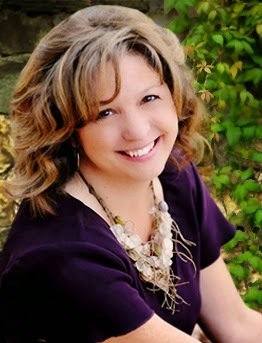 Kristen Heitzmann
is the bestselling author of two historical series as well as ten contemporary romantic and psychological suspense novels, including The Still of Night, nominated for the Colorado Book Award; The Tender Vine, a Christy Award finalist; and the Christy Award-winning Secrets.She lives in the Colorado Rocky Mountain foothills with her husband Jim and sundry family members and pets.
Kristen Heitzmann
is the bestselling author of two historical series as well as ten contemporary romantic and psychological suspense novels, including The Still of Night, nominated for the Colorado Book Award; The Tender Vine, a Christy Award finalist; and the Christy Award-winning Secrets.She lives in the Colorado Rocky Mountain foothills with her husband Jim and sundry family members and pets. DiAnn Mills is a bestselling author who believes her readers should expect an adventure. She combines unforgettable characters with unpredictable plots to create action-packed, suspense-filled novels.
DiAnn Mills is a bestselling author who believes her readers should expect an adventure. She combines unforgettable characters with unpredictable plots to create action-packed, suspense-filled novels. Her titles have appeared on the CBA and ECPA bestseller lists; won two Christy Awards; and been finalists for the RITA, Daphne Du Maurier, Inspirational Readers’ Choice, and Carol award contests. Library Journal presented her with a Best Books 2014: Genre Fiction award in the Christian Fiction category for Firewall.
DiAnn is a founding board member of the American Christian Fiction Writers; the 2015 president of the Romance Writers of America’s Faith, Hope, & Love chapter; a member of Advanced Writers and Speakers Association, and International Thriller Writers. She speaks to various groups and teaches writing workshops around the country. She and her husband live in sunny Houston, Texas.
 Edie Melson
—author, editor and blogger—is a leading publishing professional, as well as a popular instructor and mentor. Her heart to help others define and reach their dreams has connected her with writers across the country.
Edie Melson
—author, editor and blogger—is a leading publishing professional, as well as a popular instructor and mentor. Her heart to help others define and reach their dreams has connected her with writers across the country. As a respected expert in social media, Edie has the proven expertise to teach others how to plug in without sacrificing valuable writing time. Her bestselling eBook on this subject, has recently been updated, expanded and re-released as Connections: Social Media & Networking Techniques for Writers.
She’s the co-director of the Blue Ridge Mountains Christian Writers Conference, Social Media Mentor at My Book Therapy, the Social Media Director for Southern Writers Magazine, and the Military Family Blogger on Guideposts.org She’s also the Senior Editor at Novel Rocket. Connect with Edie through her blog, Twitter and Facebook.
You can get more details at: http://writerwkend.blogspot.com
Published on December 18, 2014 01:00
December 16, 2014
Evaluate Your Progress on the Writing Path
by Edie Melson @EdieMelson

 The writer’s path is a journey of a lifetime—one fraught with discovery and discouragement. We can avoid some of its pitfalls if we define that path early on. Today, I want to share some insights into my writing journey and the markers I look for to help me stay at least in the vicinity of the path.
The writer’s path is a journey of a lifetime—one fraught with discovery and discouragement. We can avoid some of its pitfalls if we define that path early on. Today, I want to share some insights into my writing journey and the markers I look for to help me stay at least in the vicinity of the path.
This time of year, with Christmas and New Year's still looming close behind, my thoughts turn backward. I use this time to evaluate the past year and prepare for the next one. I've given up New Year's Resolutions completely and find the freedom from those expectations (and failures) a major relief.
But I have implemented something else instead. My husband and I spend some time looking back at our spiritual markers for the past year. We evaluate them individually, as a couple and as a family. I also look at them in regard to my past year as a writer.
Questions to Get Me Started
 What were some of my writing successes this past year? (Not necessarily the most lucrative, but the most rewarding)What were some of my writing setbacks this past year?What writing advice stands out in my mind because it seemed to have been aimed directly at me?What brought me the most joy? (Writing related)
What were some of my writing successes this past year? (Not necessarily the most lucrative, but the most rewarding)What were some of my writing setbacks this past year?What writing advice stands out in my mind because it seemed to have been aimed directly at me?What brought me the most joy? (Writing related)
As I map out these spiritual markers, the path God has had me on becomes quite clear. And, by knowing where I've been, it becomes clearer where to go next.
I'd love to hear some of your answers to these questions. I'll be posting mine later in the comments section.
Don’t forget to join the conversation!Blessings,
Edie
TWEETABLESEvaluate your progress on the writing path by looking back & moving forward - via @EdieMelson (Click to Tweet)

 The writer’s path is a journey of a lifetime—one fraught with discovery and discouragement. We can avoid some of its pitfalls if we define that path early on. Today, I want to share some insights into my writing journey and the markers I look for to help me stay at least in the vicinity of the path.
The writer’s path is a journey of a lifetime—one fraught with discovery and discouragement. We can avoid some of its pitfalls if we define that path early on. Today, I want to share some insights into my writing journey and the markers I look for to help me stay at least in the vicinity of the path.This time of year, with Christmas and New Year's still looming close behind, my thoughts turn backward. I use this time to evaluate the past year and prepare for the next one. I've given up New Year's Resolutions completely and find the freedom from those expectations (and failures) a major relief.
But I have implemented something else instead. My husband and I spend some time looking back at our spiritual markers for the past year. We evaluate them individually, as a couple and as a family. I also look at them in regard to my past year as a writer.
Questions to Get Me Started

 What were some of my writing successes this past year? (Not necessarily the most lucrative, but the most rewarding)What were some of my writing setbacks this past year?What writing advice stands out in my mind because it seemed to have been aimed directly at me?What brought me the most joy? (Writing related)
What were some of my writing successes this past year? (Not necessarily the most lucrative, but the most rewarding)What were some of my writing setbacks this past year?What writing advice stands out in my mind because it seemed to have been aimed directly at me?What brought me the most joy? (Writing related) As I map out these spiritual markers, the path God has had me on becomes quite clear. And, by knowing where I've been, it becomes clearer where to go next.
I'd love to hear some of your answers to these questions. I'll be posting mine later in the comments section.
Don’t forget to join the conversation!Blessings,
Edie
TWEETABLESEvaluate your progress on the writing path by looking back & moving forward - via @EdieMelson (Click to Tweet)
Published on December 16, 2014 01:00
December 15, 2014
Social Media Monday—Basic Social Media Strategies for 2015
by Edie Melson @EdieMelson
 Last week my post on Facebook Changes in 2015 caused quite a stir. That really wasn’t my intent. My purpose was to give all of us enough advance notice to make some wise social media decisions while we watch how everything settles out.
Last week my post on Facebook Changes in 2015 caused quite a stir. That really wasn’t my intent. My purpose was to give all of us enough advance notice to make some wise social media decisions while we watch how everything settles out.
Today I’m going to share several social media strategies to deal with upcoming changes. Most are applicable no matter what your specific circumstances.
Basic Social Media Strategies for 2015Diversify: with all that’s going on in the digital universe we can see the wisdom of not putting all our social media eggs in one basket. What many may not know, it that includes finding a base of operations to work from. This means we all need a regular place to blog, whether it’s our own site or a group site. Email List: I know in the past I’ve let this one slide. Now that I’ve been reminded that I may not always have access to everyone through social media I’ve become more proactive about building my list.Experiment: We need to be more open about trying new things and new ways to connect. That includes seeing if targeted Facebook advertising could be a successful part of our new social media strategyConcentrate on Blogging: Now more than ever writers need to build a stable digital foundation. Social media networks no longer qualify as stable. Small changes can hold devastating results if that’s our only audience-building strategy.Discover Where Your Audience Hangs Out & Join Them There: So often we make a fundamental mistake when we’re trying to connect with our readers. We expect them to come to us. Instead, we need to find places they hang out and visit them there. What does that mean? It can mean a lot of different things, from Facebook groups, chat rooms, online groups. (And yes, this specific suggestion will be covered in depth in a future blog post.)
Email List: I know in the past I’ve let this one slide. Now that I’ve been reminded that I may not always have access to everyone through social media I’ve become more proactive about building my list.Experiment: We need to be more open about trying new things and new ways to connect. That includes seeing if targeted Facebook advertising could be a successful part of our new social media strategyConcentrate on Blogging: Now more than ever writers need to build a stable digital foundation. Social media networks no longer qualify as stable. Small changes can hold devastating results if that’s our only audience-building strategy.Discover Where Your Audience Hangs Out & Join Them There: So often we make a fundamental mistake when we’re trying to connect with our readers. We expect them to come to us. Instead, we need to find places they hang out and visit them there. What does that mean? It can mean a lot of different things, from Facebook groups, chat rooms, online groups. (And yes, this specific suggestion will be covered in depth in a future blog post.)
 Look for Opportunities to Guest Post: Along the lines of hanging out where your audience is, look for other sites that have a good following and query about sharing a guest post.Read and Comment on Other Blogs: This is similar to hanging out with your audience. Don't just think of blogs as a place to get or give information. Instead look at them as a gathering place. Interact with the audience, look for new people to connect with and join the conversation.Build the Basics on Multiple Social Media Networks: This is similar to my diversify advice for all writers. But it’s even more critical when you’re just starting out. Don’t just pour all your energy into a single social media network. Get comfortable with multiple networks and you’ll be able to weather the changes to come.Don’t be afraid to branch out.It’s easy to get comfortable with our online routine. Now is the time begin to try something new. For example, if you haven’t used the boost option on Facebook, now’s the time to try it. Don’t wait until it’s the only option.
Look for Opportunities to Guest Post: Along the lines of hanging out where your audience is, look for other sites that have a good following and query about sharing a guest post.Read and Comment on Other Blogs: This is similar to hanging out with your audience. Don't just think of blogs as a place to get or give information. Instead look at them as a gathering place. Interact with the audience, look for new people to connect with and join the conversation.Build the Basics on Multiple Social Media Networks: This is similar to my diversify advice for all writers. But it’s even more critical when you’re just starting out. Don’t just pour all your energy into a single social media network. Get comfortable with multiple networks and you’ll be able to weather the changes to come.Don’t be afraid to branch out.It’s easy to get comfortable with our online routine. Now is the time begin to try something new. For example, if you haven’t used the boost option on Facebook, now’s the time to try it. Don’t wait until it’s the only option.
And the most important strategy for 2015. . .
Stay Calm: It's vital that we don't allow social media changes to throw us into a panic. Some will work out for the best, and others, well, not so much. But as long as we stay flexible, we'll be fine.
These are my tips for the next year. I'd love to have the opportunity to answer your specific questions, so be sure to leave them in the comments section below.
And don't forget to join the conversation!
Blessings,
Edie
TWEETABLES
Changes in #socialmedia are normal @EdieMelson has the tips to keep you on track for what's to come (Click to Tweet)
Tips for a Successful #SocialMedia Strategy in 2015 - via Social Media Mentor @Ediemelson (Click to Tweet)
 Last week my post on Facebook Changes in 2015 caused quite a stir. That really wasn’t my intent. My purpose was to give all of us enough advance notice to make some wise social media decisions while we watch how everything settles out.
Last week my post on Facebook Changes in 2015 caused quite a stir. That really wasn’t my intent. My purpose was to give all of us enough advance notice to make some wise social media decisions while we watch how everything settles out.Today I’m going to share several social media strategies to deal with upcoming changes. Most are applicable no matter what your specific circumstances.
Basic Social Media Strategies for 2015Diversify: with all that’s going on in the digital universe we can see the wisdom of not putting all our social media eggs in one basket. What many may not know, it that includes finding a base of operations to work from. This means we all need a regular place to blog, whether it’s our own site or a group site.
 Email List: I know in the past I’ve let this one slide. Now that I’ve been reminded that I may not always have access to everyone through social media I’ve become more proactive about building my list.Experiment: We need to be more open about trying new things and new ways to connect. That includes seeing if targeted Facebook advertising could be a successful part of our new social media strategyConcentrate on Blogging: Now more than ever writers need to build a stable digital foundation. Social media networks no longer qualify as stable. Small changes can hold devastating results if that’s our only audience-building strategy.Discover Where Your Audience Hangs Out & Join Them There: So often we make a fundamental mistake when we’re trying to connect with our readers. We expect them to come to us. Instead, we need to find places they hang out and visit them there. What does that mean? It can mean a lot of different things, from Facebook groups, chat rooms, online groups. (And yes, this specific suggestion will be covered in depth in a future blog post.)
Email List: I know in the past I’ve let this one slide. Now that I’ve been reminded that I may not always have access to everyone through social media I’ve become more proactive about building my list.Experiment: We need to be more open about trying new things and new ways to connect. That includes seeing if targeted Facebook advertising could be a successful part of our new social media strategyConcentrate on Blogging: Now more than ever writers need to build a stable digital foundation. Social media networks no longer qualify as stable. Small changes can hold devastating results if that’s our only audience-building strategy.Discover Where Your Audience Hangs Out & Join Them There: So often we make a fundamental mistake when we’re trying to connect with our readers. We expect them to come to us. Instead, we need to find places they hang out and visit them there. What does that mean? It can mean a lot of different things, from Facebook groups, chat rooms, online groups. (And yes, this specific suggestion will be covered in depth in a future blog post.)
 Look for Opportunities to Guest Post: Along the lines of hanging out where your audience is, look for other sites that have a good following and query about sharing a guest post.Read and Comment on Other Blogs: This is similar to hanging out with your audience. Don't just think of blogs as a place to get or give information. Instead look at them as a gathering place. Interact with the audience, look for new people to connect with and join the conversation.Build the Basics on Multiple Social Media Networks: This is similar to my diversify advice for all writers. But it’s even more critical when you’re just starting out. Don’t just pour all your energy into a single social media network. Get comfortable with multiple networks and you’ll be able to weather the changes to come.Don’t be afraid to branch out.It’s easy to get comfortable with our online routine. Now is the time begin to try something new. For example, if you haven’t used the boost option on Facebook, now’s the time to try it. Don’t wait until it’s the only option.
Look for Opportunities to Guest Post: Along the lines of hanging out where your audience is, look for other sites that have a good following and query about sharing a guest post.Read and Comment on Other Blogs: This is similar to hanging out with your audience. Don't just think of blogs as a place to get or give information. Instead look at them as a gathering place. Interact with the audience, look for new people to connect with and join the conversation.Build the Basics on Multiple Social Media Networks: This is similar to my diversify advice for all writers. But it’s even more critical when you’re just starting out. Don’t just pour all your energy into a single social media network. Get comfortable with multiple networks and you’ll be able to weather the changes to come.Don’t be afraid to branch out.It’s easy to get comfortable with our online routine. Now is the time begin to try something new. For example, if you haven’t used the boost option on Facebook, now’s the time to try it. Don’t wait until it’s the only option.And the most important strategy for 2015. . .
Stay Calm: It's vital that we don't allow social media changes to throw us into a panic. Some will work out for the best, and others, well, not so much. But as long as we stay flexible, we'll be fine.
These are my tips for the next year. I'd love to have the opportunity to answer your specific questions, so be sure to leave them in the comments section below.
And don't forget to join the conversation!
Blessings,
Edie
TWEETABLES
Changes in #socialmedia are normal @EdieMelson has the tips to keep you on track for what's to come (Click to Tweet)
Tips for a Successful #SocialMedia Strategy in 2015 - via Social Media Mentor @Ediemelson (Click to Tweet)
Published on December 15, 2014 01:00
December 14, 2014
The Voice of Love
by Sarah Van Diest
 Making sense of trials often takes time. Why do we feel the way we feel? Is a question we can often only partly answer in the middle of feeling it. And Why can’t we fix what’s wrong with us? Can be even harder to answer. Hindsight is clearer most of the time, if not all of the time.
Making sense of trials often takes time. Why do we feel the way we feel? Is a question we can often only partly answer in the middle of feeling it. And Why can’t we fix what’s wrong with us? Can be even harder to answer. Hindsight is clearer most of the time, if not all of the time.
Not long ago, I basically stopped eating. Each day my caloric intake decreased. My typical daily allowance was somewhere around 1500 prior to this decline, but by the end of the third week I was down to about 300 calories a day. If a banana has 65 calories then that’s where I was at the end of 4 weeks.
A dangerous trend.
Trauma had triggered the disorder to begin with and trauma had induced it this time, but I still couldn’t make it stop. Just because I understood why it was there didn’t mean I had the tools to think or feel my way out. I could see the impending destination of this reduced caloric intake, and I had no desire to go there, but that didn’t fix the repulsion I felt when I thought of eating; that didn’t take away the pain and sickness I felt when food hit my stomach; that didn’t rescue me from my own hand.
So what did?
 I want to give you the full answer. I don’t know if that’s what I have, but that’s what I hope I am beginning to grasp. It has to do with love, and ultimately that’s my answer, but there’s a more complete explanation needed here.
I want to give you the full answer. I don’t know if that’s what I have, but that’s what I hope I am beginning to grasp. It has to do with love, and ultimately that’s my answer, but there’s a more complete explanation needed here.
As I’ve learned since those gaunt days, we all have a particular construct working in us. It’s what psychiatrist Eric Berne called “Parent. Adult. Child.” It sounds simple, if not simplistic, but it has proven very helpful for me to understand the agents at work in my mind, will and emotions. The Parent is the rule maker, keeper and judge. The Parent comes out in our expressions of “I should” or “You shouldn’t,” etc. The Child is our feeler. It hurts, it wants, it fears, etc. The Adult is our even-tempered thinker. There is no condemning judge in the Adult and no fearful reactionary. The Adult takes in the information, assesses it and works from its understanding.
What I can see now is that my Adult wasn’t allowed to enter the conversation much at all. The fear (Child) I felt pushed me to run out of the present reality trauma had awakened me to, but rules (Parent) were keeping me from running. Neither were bad; they were just responses to what had happened recently and what had happened in my past, but the Parent in me was extremely judgmental of the Child in me. I was harsh and condemnatory toward the feelings I had of fear, anxiety, hurt and the desire I had to flee. The more time passed and the more it became clear I wasn’t getting better but was actually getting worse (now not just traumatized, but also not eating), the more condemnation I poured out on myself and the worse I felt. I couldn’t reason my way out of this which confounded and saddened my loved ones, and the “smallness” of my faith distressed my spirit. Depression set in and hopelessness filled my soul.
So what do I mean “love” rescued me?
 At the end of this 4 weeks we visited family. We went home. Sitting at a table in a restaurant with our boys, who had worked there for years, I ate. I didn’t know what was happening, but I felt hunger for the first time in a month. Food sounded good, smelled good, looked good and tasted good. As we talked, laughed and shared a meal together, I didn’t hear those warring voices in my head. They were silent. As if they had gone to sleep and were giving me permission to eat with my family.
At the end of this 4 weeks we visited family. We went home. Sitting at a table in a restaurant with our boys, who had worked there for years, I ate. I didn’t know what was happening, but I felt hunger for the first time in a month. Food sounded good, smelled good, looked good and tasted good. As we talked, laughed and shared a meal together, I didn’t hear those warring voices in my head. They were silent. As if they had gone to sleep and were giving me permission to eat with my family.
And yes, I knew what was happening. I knew I was eating for the first time in a month. I was very much aware of it; cognizant of the fact that I wasn’t struggling to feed myself. I wasn’t blind or forgetful; distracted or any other thing. I knew. But I didn’t understand. All the other times I had spiraled down like this had lasted much longer, as in years at a time.
It wasn’t until I was sitting in my therapist’s office (after a week of back to normal eating) describing what had happened that I saw the full picture.
I had been reading a book called Present Perfect by Greg Boyd. Boyd’s purpose in writing the book was to understand for himself and hopefully for his readers what others had experienced as they “practiced the presence of God” in their lives. He researched some of the great minds of the past centuries to find what they meant by living moment-by-moment in the knowledge of God’s love for them. One of the principles he describes came to life for me through this trial.
Boyd talks about our “autopilot programming.” This has to do with the reactions we have that come subconsciously. He gives an example of a woman who as a child heard of a plane crashing and killing many children, and as a 40 year old she still was terrified to fly. The message she heard when she was very young had held her captive all these years, even though her mind was sensible that the likelihood of crashing was very low. She was in bondage to her fears.
Boyd says this, “The truest and most insightful information in the world won’t change us so long as our moment-by-moment experience of our self and interaction with the world is dictated by our programmed flesh-mind. We’ll simply become a slightly more informed slave to whomever or whatever programmed us” (p.87, 88). Just having the right and correct information isn’t enough to set us free. Just knowing I needed to eat and knowing why I wasn’t eating weren’t sufficient to quiet the voices and release me to eat.
Here’s what Boyd says we can do with those autopilot programs and the condemnations we lay on ourselves because of them: bring them to Christ. “Well, of course” you say, as did I, but here’s the catch for me: I somehow thought I had to clean them up, fix them, before I brought them to Christ. I thought I had to take them captive (and make them my slave) before I could bring them to Him. My Parent was sure I needed to stop feeling (Child) what I was feeling; that I needed to eradicate from my mind and heart the fear I felt before I was acceptable to God. Fear, in my understanding, was proof I wasn’t trusting God.
What Boyd reminded me of was this: moment-by-moment, as in right now, God loves me. His love for me is full, overflowing, abundant, pure, and free. His love is not conditioned on my acceptability level, or level of “rightness,” or lack of fear. What I saw in Boyd’s book was the encouragement I needed to bring my mental and emotional “garbage” or “baggage” as it is, without judgment, to Christ; and at the same time sit in the present understanding of His great love for me. As I sit there, I can look on at my “garbage” and simply observe it.
There, in that posture, I can listen to my Father’s voice. His voice can speak to my Adult ears and I can hear His truth about me. His love quiets the other voices in my head and heart. The Parent condemnatory voice is silenced by the Judge whose love covers all sin, and the Child fearful voice is quieted, comforted, reassured and soothed by His loving presence.
For eating to resume in my life I had to experience being loved. The voices in me had to be quieted and love came to meet my needs. And so I ate. Freely. Without condemnation or fear.
And this principle is permeating my life. All around. I hear myself “should-ing” all over the place. I feel myself fearing or craving all over the place. And now I know the voice I really want to hear; the voice that speaks Truth to me. I know my Shepherd’s voice. I recognize it amid all the other voices around me. It is love. His voice is Love.
And moment-by-moment, for that’s all we really have anyway, I hope to remember my Father’s love for me. And moment-by-moment find the freedom from slavery His love gives.
“The Spirit you received does not make you slaves, so that you live in fear again; rather the Spirit you received brought about your adoptions to sonship. And by him we cry, ‘Abba Father’” Rom. 8:15.
“We are destroying every speculations and every lofty thing raised up against the knowledge of God, and we are taking every thought captive to the obedience of Christ” II Cor. 10:5. (Oh, look at that… not to make it my slave, but to the obedience of Christ!)
“Cast all your anxieties on Him, for He cares for you” I Pet. 5:7. (That’s present tense!)
 Sarah has worked in Christian publishing since 2005 as both and editor and an agent.
Sarah has worked in Christian publishing since 2005 as both and editor and an agent.
Currently, she works with her husband, David, in their agency, the Van Diest Literary Agency. Writing is a growing passion for her as she hopes to bring hope to hurting hearts.
 Making sense of trials often takes time. Why do we feel the way we feel? Is a question we can often only partly answer in the middle of feeling it. And Why can’t we fix what’s wrong with us? Can be even harder to answer. Hindsight is clearer most of the time, if not all of the time.
Making sense of trials often takes time. Why do we feel the way we feel? Is a question we can often only partly answer in the middle of feeling it. And Why can’t we fix what’s wrong with us? Can be even harder to answer. Hindsight is clearer most of the time, if not all of the time. Not long ago, I basically stopped eating. Each day my caloric intake decreased. My typical daily allowance was somewhere around 1500 prior to this decline, but by the end of the third week I was down to about 300 calories a day. If a banana has 65 calories then that’s where I was at the end of 4 weeks.
A dangerous trend.
Trauma had triggered the disorder to begin with and trauma had induced it this time, but I still couldn’t make it stop. Just because I understood why it was there didn’t mean I had the tools to think or feel my way out. I could see the impending destination of this reduced caloric intake, and I had no desire to go there, but that didn’t fix the repulsion I felt when I thought of eating; that didn’t take away the pain and sickness I felt when food hit my stomach; that didn’t rescue me from my own hand.
So what did?
 I want to give you the full answer. I don’t know if that’s what I have, but that’s what I hope I am beginning to grasp. It has to do with love, and ultimately that’s my answer, but there’s a more complete explanation needed here.
I want to give you the full answer. I don’t know if that’s what I have, but that’s what I hope I am beginning to grasp. It has to do with love, and ultimately that’s my answer, but there’s a more complete explanation needed here. As I’ve learned since those gaunt days, we all have a particular construct working in us. It’s what psychiatrist Eric Berne called “Parent. Adult. Child.” It sounds simple, if not simplistic, but it has proven very helpful for me to understand the agents at work in my mind, will and emotions. The Parent is the rule maker, keeper and judge. The Parent comes out in our expressions of “I should” or “You shouldn’t,” etc. The Child is our feeler. It hurts, it wants, it fears, etc. The Adult is our even-tempered thinker. There is no condemning judge in the Adult and no fearful reactionary. The Adult takes in the information, assesses it and works from its understanding.
What I can see now is that my Adult wasn’t allowed to enter the conversation much at all. The fear (Child) I felt pushed me to run out of the present reality trauma had awakened me to, but rules (Parent) were keeping me from running. Neither were bad; they were just responses to what had happened recently and what had happened in my past, but the Parent in me was extremely judgmental of the Child in me. I was harsh and condemnatory toward the feelings I had of fear, anxiety, hurt and the desire I had to flee. The more time passed and the more it became clear I wasn’t getting better but was actually getting worse (now not just traumatized, but also not eating), the more condemnation I poured out on myself and the worse I felt. I couldn’t reason my way out of this which confounded and saddened my loved ones, and the “smallness” of my faith distressed my spirit. Depression set in and hopelessness filled my soul.
So what do I mean “love” rescued me?
 At the end of this 4 weeks we visited family. We went home. Sitting at a table in a restaurant with our boys, who had worked there for years, I ate. I didn’t know what was happening, but I felt hunger for the first time in a month. Food sounded good, smelled good, looked good and tasted good. As we talked, laughed and shared a meal together, I didn’t hear those warring voices in my head. They were silent. As if they had gone to sleep and were giving me permission to eat with my family.
At the end of this 4 weeks we visited family. We went home. Sitting at a table in a restaurant with our boys, who had worked there for years, I ate. I didn’t know what was happening, but I felt hunger for the first time in a month. Food sounded good, smelled good, looked good and tasted good. As we talked, laughed and shared a meal together, I didn’t hear those warring voices in my head. They were silent. As if they had gone to sleep and were giving me permission to eat with my family. And yes, I knew what was happening. I knew I was eating for the first time in a month. I was very much aware of it; cognizant of the fact that I wasn’t struggling to feed myself. I wasn’t blind or forgetful; distracted or any other thing. I knew. But I didn’t understand. All the other times I had spiraled down like this had lasted much longer, as in years at a time.
It wasn’t until I was sitting in my therapist’s office (after a week of back to normal eating) describing what had happened that I saw the full picture.
I had been reading a book called Present Perfect by Greg Boyd. Boyd’s purpose in writing the book was to understand for himself and hopefully for his readers what others had experienced as they “practiced the presence of God” in their lives. He researched some of the great minds of the past centuries to find what they meant by living moment-by-moment in the knowledge of God’s love for them. One of the principles he describes came to life for me through this trial.
Boyd talks about our “autopilot programming.” This has to do with the reactions we have that come subconsciously. He gives an example of a woman who as a child heard of a plane crashing and killing many children, and as a 40 year old she still was terrified to fly. The message she heard when she was very young had held her captive all these years, even though her mind was sensible that the likelihood of crashing was very low. She was in bondage to her fears.
Boyd says this, “The truest and most insightful information in the world won’t change us so long as our moment-by-moment experience of our self and interaction with the world is dictated by our programmed flesh-mind. We’ll simply become a slightly more informed slave to whomever or whatever programmed us” (p.87, 88). Just having the right and correct information isn’t enough to set us free. Just knowing I needed to eat and knowing why I wasn’t eating weren’t sufficient to quiet the voices and release me to eat.
Here’s what Boyd says we can do with those autopilot programs and the condemnations we lay on ourselves because of them: bring them to Christ. “Well, of course” you say, as did I, but here’s the catch for me: I somehow thought I had to clean them up, fix them, before I brought them to Christ. I thought I had to take them captive (and make them my slave) before I could bring them to Him. My Parent was sure I needed to stop feeling (Child) what I was feeling; that I needed to eradicate from my mind and heart the fear I felt before I was acceptable to God. Fear, in my understanding, was proof I wasn’t trusting God.
What Boyd reminded me of was this: moment-by-moment, as in right now, God loves me. His love for me is full, overflowing, abundant, pure, and free. His love is not conditioned on my acceptability level, or level of “rightness,” or lack of fear. What I saw in Boyd’s book was the encouragement I needed to bring my mental and emotional “garbage” or “baggage” as it is, without judgment, to Christ; and at the same time sit in the present understanding of His great love for me. As I sit there, I can look on at my “garbage” and simply observe it.
There, in that posture, I can listen to my Father’s voice. His voice can speak to my Adult ears and I can hear His truth about me. His love quiets the other voices in my head and heart. The Parent condemnatory voice is silenced by the Judge whose love covers all sin, and the Child fearful voice is quieted, comforted, reassured and soothed by His loving presence.
For eating to resume in my life I had to experience being loved. The voices in me had to be quieted and love came to meet my needs. And so I ate. Freely. Without condemnation or fear.
And this principle is permeating my life. All around. I hear myself “should-ing” all over the place. I feel myself fearing or craving all over the place. And now I know the voice I really want to hear; the voice that speaks Truth to me. I know my Shepherd’s voice. I recognize it amid all the other voices around me. It is love. His voice is Love.
And moment-by-moment, for that’s all we really have anyway, I hope to remember my Father’s love for me. And moment-by-moment find the freedom from slavery His love gives.
“The Spirit you received does not make you slaves, so that you live in fear again; rather the Spirit you received brought about your adoptions to sonship. And by him we cry, ‘Abba Father’” Rom. 8:15.
“We are destroying every speculations and every lofty thing raised up against the knowledge of God, and we are taking every thought captive to the obedience of Christ” II Cor. 10:5. (Oh, look at that… not to make it my slave, but to the obedience of Christ!)
“Cast all your anxieties on Him, for He cares for you” I Pet. 5:7. (That’s present tense!)
 Sarah has worked in Christian publishing since 2005 as both and editor and an agent.
Sarah has worked in Christian publishing since 2005 as both and editor and an agent.
Currently, she works with her husband, David, in their agency, the Van Diest Literary Agency. Writing is a growing passion for her as she hopes to bring hope to hurting hearts.
Published on December 14, 2014 01:00
December 13, 2014
Discover What Works for You
by Beth Vogt @BethVogt
 "Life is trying things to see if they work." Ray Bradbury
"Life is trying things to see if they work." Ray Bradbury
I like the freedom inherent in today’s quote:Life is about trying things … and maybe they work, and maybe they don’t.
Life isn’t about getting it right the first time. And there are some seasons in our lives when it isn’t about getting it right most of the time.
Life is about discovering what works for you.
So here’s a story for you:I went to breakfast yesterday with a few writing friends. One of those friends was an early writing mentor. This is how my former mentor complimented me on Somebody Like You, my latest novel: Beth, I hope it’s okay for me to say this, but Somebody Like You is better than Catch a Falling Star. (Catch a Falling Star is the novel I wrote before SLY.)
My response: I hope so!
I try to up my game with every book I write. I want to discover what is working for me as a writer—and improve on it. And I also try to figure out what isn’t working—and fix it in the next book I write.
I wish I had learned the whole “how’s it working for you?” principle sooner in my life—instead of operating on the “let’s pretend I’ve got it all together and aim for perfectionism” theory. When I allow myself to learn—and leave room for both success and failure—then I grow in an atmosphere of grace.
In Your Words: So what have you tried lately—and discovered “Wow! This worked!” And what have you tried … and it didn’t work? And what did you learn from those experiences?
TWEETABLEDiscovering what works for often involves trying something new - via @BethVogt on @EdieMelson (Click to Tweet)
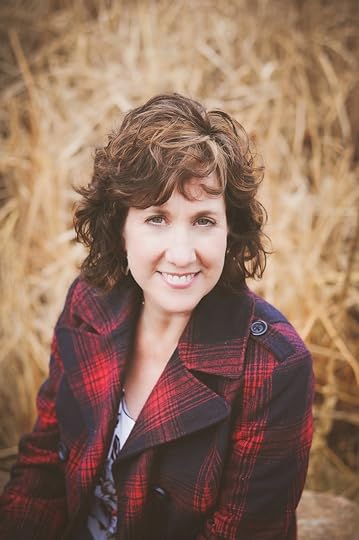 Beth K. Vogt believes God’s best often waits behind the doors marked “Never.” A nonfiction writer and editor who said she’d never write fiction, Beth is now a novelist with Howard Books. She enjoys writing inspirational contemporary romance because she believes there’s more to happily-ever-after than the fairy tales tell us. Connect with Beth on her website, Twitter, Facebook, or check out her blog on quotes, In Others’Words.
Beth K. Vogt believes God’s best often waits behind the doors marked “Never.” A nonfiction writer and editor who said she’d never write fiction, Beth is now a novelist with Howard Books. She enjoys writing inspirational contemporary romance because she believes there’s more to happily-ever-after than the fairy tales tell us. Connect with Beth on her website, Twitter, Facebook, or check out her blog on quotes, In Others’Words.
 "Life is trying things to see if they work." Ray Bradbury
"Life is trying things to see if they work." Ray BradburyI like the freedom inherent in today’s quote:Life is about trying things … and maybe they work, and maybe they don’t.
Life isn’t about getting it right the first time. And there are some seasons in our lives when it isn’t about getting it right most of the time.
Life is about discovering what works for you.
So here’s a story for you:I went to breakfast yesterday with a few writing friends. One of those friends was an early writing mentor. This is how my former mentor complimented me on Somebody Like You, my latest novel: Beth, I hope it’s okay for me to say this, but Somebody Like You is better than Catch a Falling Star. (Catch a Falling Star is the novel I wrote before SLY.)
My response: I hope so!
I try to up my game with every book I write. I want to discover what is working for me as a writer—and improve on it. And I also try to figure out what isn’t working—and fix it in the next book I write.
I wish I had learned the whole “how’s it working for you?” principle sooner in my life—instead of operating on the “let’s pretend I’ve got it all together and aim for perfectionism” theory. When I allow myself to learn—and leave room for both success and failure—then I grow in an atmosphere of grace.
In Your Words: So what have you tried lately—and discovered “Wow! This worked!” And what have you tried … and it didn’t work? And what did you learn from those experiences?
TWEETABLEDiscovering what works for often involves trying something new - via @BethVogt on @EdieMelson (Click to Tweet)
 Beth K. Vogt believes God’s best often waits behind the doors marked “Never.” A nonfiction writer and editor who said she’d never write fiction, Beth is now a novelist with Howard Books. She enjoys writing inspirational contemporary romance because she believes there’s more to happily-ever-after than the fairy tales tell us. Connect with Beth on her website, Twitter, Facebook, or check out her blog on quotes, In Others’Words.
Beth K. Vogt believes God’s best often waits behind the doors marked “Never.” A nonfiction writer and editor who said she’d never write fiction, Beth is now a novelist with Howard Books. She enjoys writing inspirational contemporary romance because she believes there’s more to happily-ever-after than the fairy tales tell us. Connect with Beth on her website, Twitter, Facebook, or check out her blog on quotes, In Others’Words.
Published on December 13, 2014 01:00
December 12, 2014
What I Learned about being a Writer from Rudolph the Red-Nosed Reindeer
by Edie Melson @EdieMelson
 I always struggle with blogging balance around the holidays. I want to join in the fun, but I get a little tired of all the non-writing posts I read everywhere. Today I want to share my version of a compromise—Top 10 Things I Learned About being a Writer From Rudolf the Red-Nosed Reindeer.
I always struggle with blogging balance around the holidays. I want to join in the fun, but I get a little tired of all the non-writing posts I read everywhere. Today I want to share my version of a compromise—Top 10 Things I Learned About being a Writer From Rudolf the Red-Nosed Reindeer.
I love all the Christmas specials that come around every year during the holidays, and Rudolph the Red-Nosed Reindeer has always been one of my favorites. I identify with his lack of self-confidence, his heart for his friends and especially his gumption when Santa called on him to step up and guide the sleigh that night.
And it occurs to me that, as writers, there are a lot of valuable lessons in this holiday tale.
What I learned about being a writer from Rudolph the Red-nosed Reindeer:
 1. We’re all born with a special gift.
1. We’re all born with a special gift.
2. At some point we all feel like that special gift is a curse.
3. Hiding who we really are are brings out the bullies and naysayers.
4. We all need time to mature into our gift.
5. Trying to live up to the image of who others think we should be won’t bring anything but trouble and heartache.
 6. True friends will see beyond our differences and embrace the essence of who we are.
6. True friends will see beyond our differences and embrace the essence of who we are.
7. We’re given that special gift for a reason and a purpose.
8. Running away from who we are doesn’t ever solve anything.
9. There will come a time when you have to decide to work within your gift, not around it.
And the best lesson of all . . . 10. Being who God meant you to be will bless others as much as you.
10. Being who God meant you to be will bless others as much as you.
How about you? Care to share something you’ve learned from an unlikely source? Be sure to share your thoughts below in the comments section.
Don’t forget to join the conversation!Blessings,Edie
TWEETABLES
Lessons learned about being a writer from Rudolph the Red-Nosed Reindeer -@EdieMelson (Click to Tweet)
Rudolph the Red-Nosed Reindeer has a lot to teach about being a writer -@EdieMelson (Click to Tweet)
 I always struggle with blogging balance around the holidays. I want to join in the fun, but I get a little tired of all the non-writing posts I read everywhere. Today I want to share my version of a compromise—Top 10 Things I Learned About being a Writer From Rudolf the Red-Nosed Reindeer.
I always struggle with blogging balance around the holidays. I want to join in the fun, but I get a little tired of all the non-writing posts I read everywhere. Today I want to share my version of a compromise—Top 10 Things I Learned About being a Writer From Rudolf the Red-Nosed Reindeer.I love all the Christmas specials that come around every year during the holidays, and Rudolph the Red-Nosed Reindeer has always been one of my favorites. I identify with his lack of self-confidence, his heart for his friends and especially his gumption when Santa called on him to step up and guide the sleigh that night.
And it occurs to me that, as writers, there are a lot of valuable lessons in this holiday tale.
What I learned about being a writer from Rudolph the Red-nosed Reindeer:
 1. We’re all born with a special gift.
1. We’re all born with a special gift. 2. At some point we all feel like that special gift is a curse.
3. Hiding who we really are are brings out the bullies and naysayers.
4. We all need time to mature into our gift.
5. Trying to live up to the image of who others think we should be won’t bring anything but trouble and heartache.
 6. True friends will see beyond our differences and embrace the essence of who we are.
6. True friends will see beyond our differences and embrace the essence of who we are.7. We’re given that special gift for a reason and a purpose.
8. Running away from who we are doesn’t ever solve anything.
9. There will come a time when you have to decide to work within your gift, not around it.
And the best lesson of all . . .
 10. Being who God meant you to be will bless others as much as you.
10. Being who God meant you to be will bless others as much as you.How about you? Care to share something you’ve learned from an unlikely source? Be sure to share your thoughts below in the comments section.
Don’t forget to join the conversation!Blessings,Edie
TWEETABLES
Lessons learned about being a writer from Rudolph the Red-Nosed Reindeer -@EdieMelson (Click to Tweet)
Rudolph the Red-Nosed Reindeer has a lot to teach about being a writer -@EdieMelson (Click to Tweet)
Published on December 12, 2014 01:00



